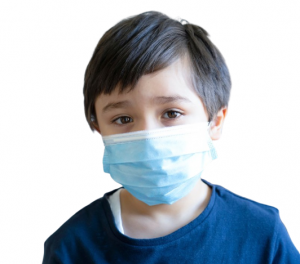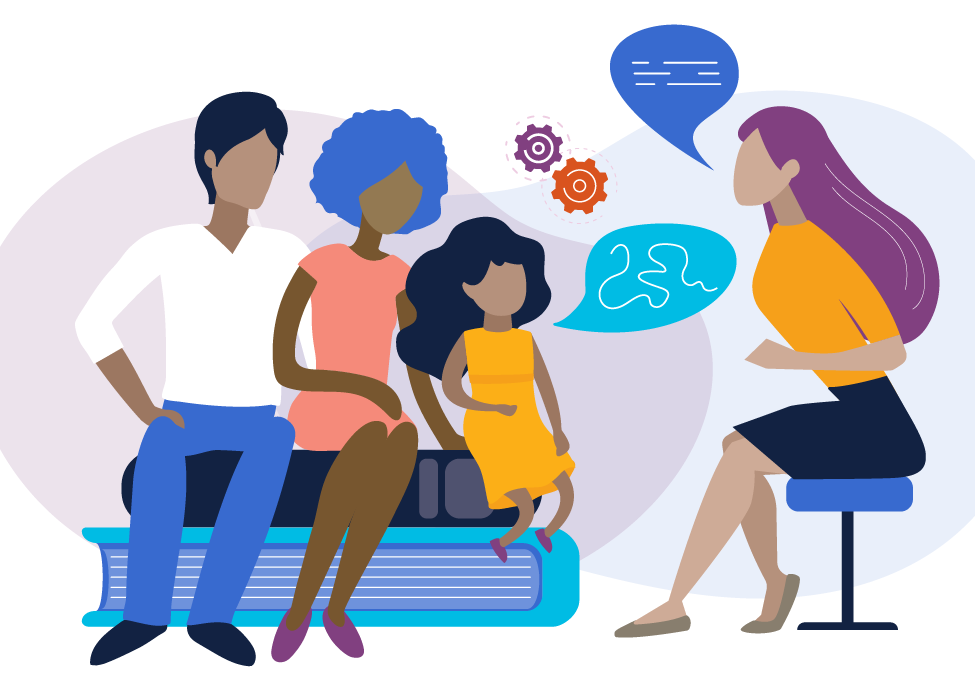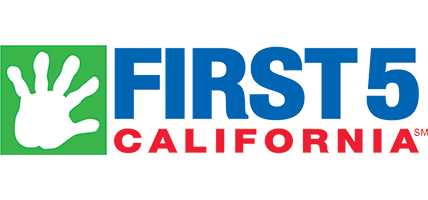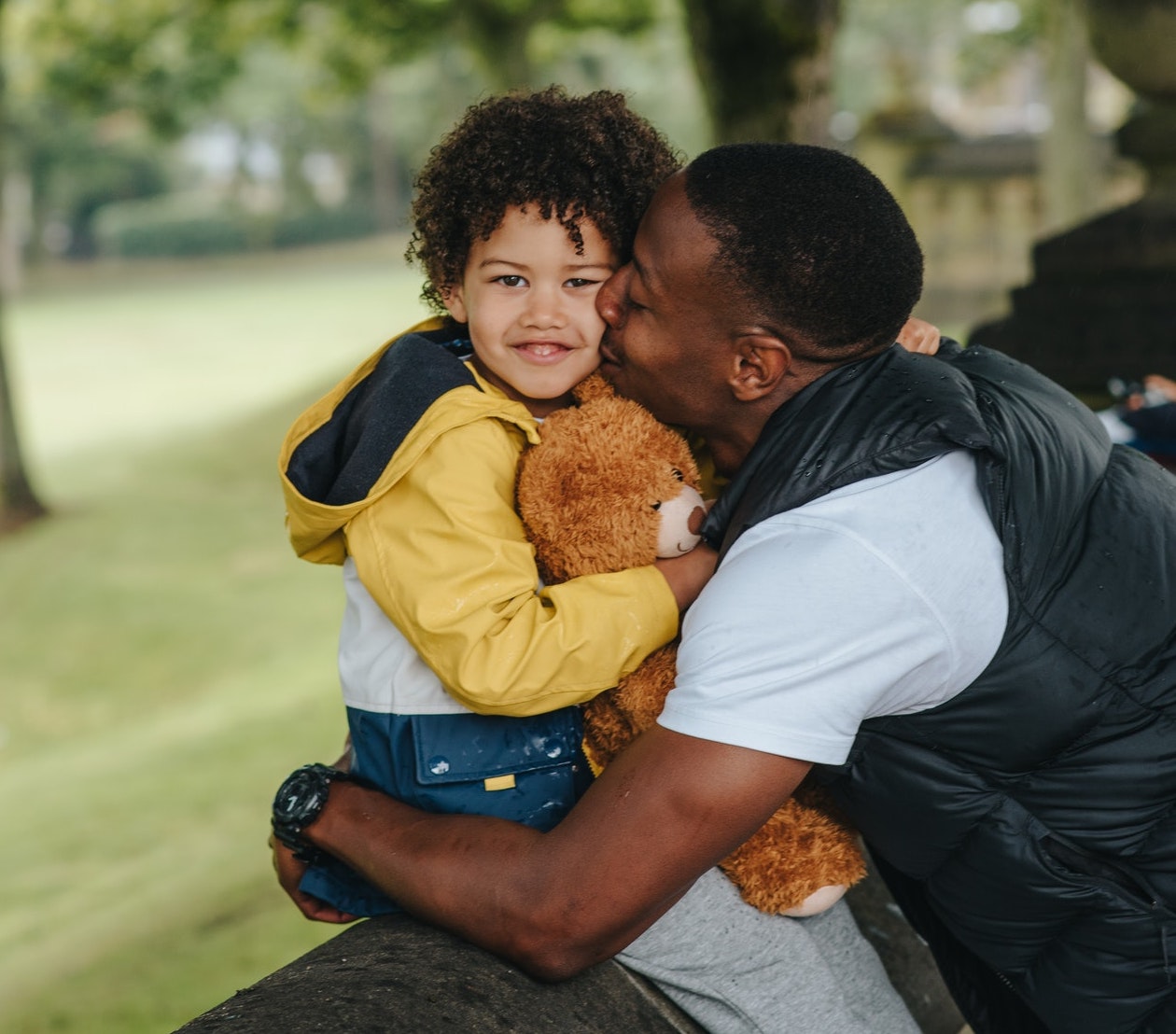Does Mask Wearing Harm Your Child’s Development? Experts Weigh In
 For young children, the pandemic comes at a crucial time for developing skills important for empathy, safety and more — a phase that some parents worry will be impaired by mask-wearing.
For young children, the pandemic comes at a crucial time for developing skills important for empathy, safety and more — a phase that some parents worry will be impaired by mask-wearing.
“There are sensitive periods in early childhood development in which language development and emotional development are really rapidly developing for the first few years of life,” said Ashley Ruba, a postdoctoral researcher in the University of Wisconsin-Madison’s Child Emotion Lab. Being able to use others’ verbal or facial cues to figure out how someone is feeling or pick up on safe or dangerous aspects of environments and people is a critical task for young kids, Ruba added.
Concerns that wearing masks might interfere with these natural learning experiences and communication skills have been studied before the pandemic.
During the pandemic, Ruba has studied whether masks affected children’s abilities to understand facial expressions.
Ruba and her coauthor showed more than 80 children ages 7 to 13 photos of faces that were unobstructed, covered by a surgical mask or wearing sunglasses. The faces displayed sadness, anger or fear.
When asked to assign one of six emotions to each face, the children were correct about uncovered faces 66% of the time, the researchers found. When faces were covered by masks, the children had trouble but were able to correctly identify sadness roughly 28% of the time, anger 27% and fear 18%, which was more than the odds (about 17%) of correctly guessing one emotion from the six labels.
Given these findings and children’s innate flexibility in adapting to challenges or catching up, some experts aren’t suspecting any long-term effects of mask-wearing on children’s development.
“I think once masks are gone or almost gone, whatever impact it has, we’ll quickly recover,” said Dr. Hugh Bases, a clinical associate professor of pediatrics at Hassenfeld Children’s Hospital at NYU Langone Health.
If children’s “social and language development is a little bit slower, which it could be, balancing that with the risk of someone dying of the coronavirus — when all the evidence we have indicates that they will catch up and they will be OK — just doesn’t seem worth it to me,” said Amy Learmonth, a professor of psychology at William Paterson University in New Jersey.
Differences among ages and learning styles
From birth, babies learn how to communicate by observing their loved ones’ faces, mouths and voices and trying to respond, according to the American Academy of Pediatrics.
If you’re worried about your child’s lingual and social development during the pandemic, just ensure you set aside time to talk with your child face-to-face when you’re at home and not wearing a mask, Learmonth suggested.
“For most of our kids, as long as they’re getting interaction with their parents in the morning and in the evening, they’re going to be OK.”
When parents can help
To better communicate with a child while wearing a mask, the AAP recommends adults get the child’s attention before speaking, face the child directly with no physical or noise barriers in the way and speak slowly and louder, but not shouting, if needed.
You can add contextual information to your words by using your hands, body language and tone of voice. Depending on the response, ask whether your child understood and repeat yourself if necessary.
If you have concerns about your child’s language development skills now or later, seek evaluation from certified speech-language pathologists.
The “greater good” of protecting one another, teachers and families “far outweighs the potential theoretical issue that might come up as a result of wearing face masks,” Bases said.
Excerpted from “Does mask wearing harm your child’s development? Experts weigh in” on CNN. Read the full article online.
Source: CNN | Does mask wearing harm your child’s development? Experts weigh in, https://www.cnn.com/2021/08/11/health/masks-child-development-effects-covid-pandemic-wellness/index.html Experts Weigh In | © 2021 Cable News Network, Inc.
If you have concerns about your child, CHC Care Coordinators can arrange a free 30-minute consultation so you can explore options with an expert. We invite you to call or email us at 650.688.3625 or careteam@chconline.org to set up an initial Parent Consultation appointment. CHC teletherapy services are available now.





